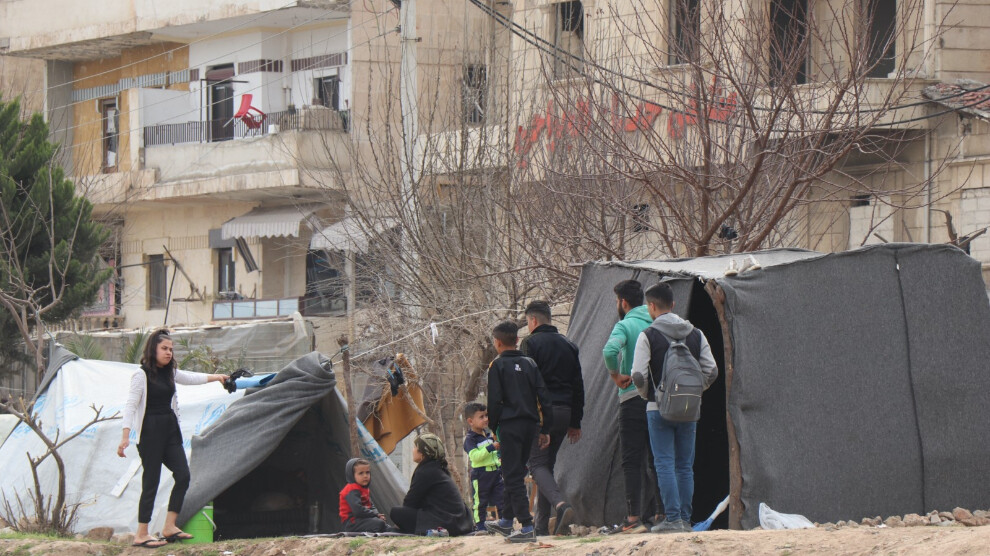In the self-governing neighbourhoods of Sheikh Maqsoud (Şêxmeqsûd) and Ashrafiyah (Eşrefiye) in Aleppo, residents are still in difficult condition after the Maraş-centered earthquakes that devastated parts of Turkey, North Kurdistan and Syria on 6 February.
The Damascus government has not allowed the humanitarian aid convoy of the Autonomous Administration of North and East Syria to enter both neighbourhoods since February 11.
It was only on 20 February when 9 international aid trucks finally entered both neighborhoods hit by the earthquake.

The basic needs of the residents of the two Kurdish neighborhoods are yet to be met due to lack of aid materials. The Damascus regime still denies delivery of fuel, medicine, flour and milk for children to the Kurdish neighborhoods.
Speaking to ANHA, resident Emel Ehmed Deşrenî said: “We have been staying in a tent with our children and neighbors since the first day of the earthquake which left our houses damaged. We share a tent with three families and we are faced with countless obstacles.”

Deşrenî pointed out that earthquake victims are still in need of aid as the supplies delivered to Sheikh Maqsoud and Ashrafiyah were not sufficient.
“Despite what we have been through since the earthquake disaster, the Damascus regime continues its embargo on the two neighborhoods, while everyone is supposed to help each other under these circumstances,” she said.
“Our children are in need of milk, food and basic supplies,” Ehmed said, pointing to the dire situation in the Kurdish neighborhoods and calling for support from international human rights organisations.
The Sheikh Maqsoud and Ashrafiyah People’s Council stated in its latest report that around 60 thousand residents of the two neighborhoods have migrated in the wake of the earthquake.



















